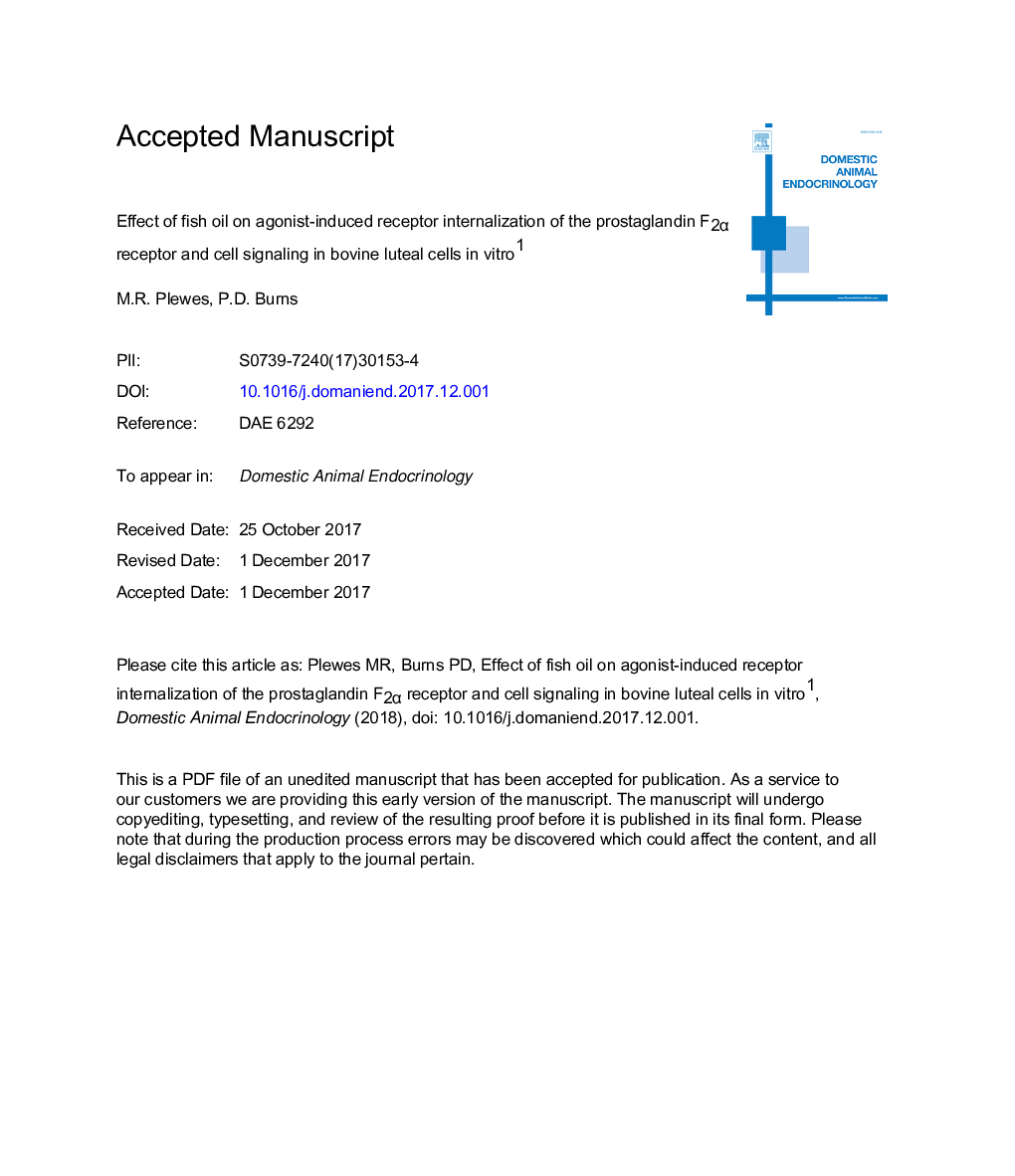| Article ID | Journal | Published Year | Pages | File Type |
|---|---|---|---|---|
| 8481941 | Domestic Animal Endocrinology | 2018 | 36 Pages |
Abstract
Many receptors span the plasma membrane allowing for signal transduction, converting extracellular signals into intracellular signals. Following ligand-induced activation, membrane-bound receptors are taken into endocytic vesicles, where they are targeted for degradation or recycled back to the plasma membrane. The objectives of the present study were to determine the influence of fish oil on (1) PGF2α-induced receptor internalization and trafficking of the PGF2α (FP) receptor, (2) cytoskeletal structural integrity, and (3) PGF2α-induced mitogen-activated protein kinase (MAPK) signaling in bovine luteal cells. Bovine ovaries were obtained from a local abattoir and corpora lutea (CL; n = 4-6) were digested using collagenase. For all experiments, cells were incubated in either BSA or fish oil-supplemented media for 72 h to allow incorporation of omega-3 fatty acids into biological membranes. Confocal microscopy was used to determine the influence of fish oil on PGF2α-induced receptor internalization and trafficking of the FP receptor and cytoskeletal structural integrity. In addition, Western blotting was used to determine the effects of fish oil on PGF2α-induced MAPK signaling in bovine luteal cells. Results from the present study demonstrate that fish oil disrupts the colocalization of Gαq with both caveola microdomains and FP receptor as well as PGF2α-induced MAPK signaling. This disruption of the FP receptor with the G-protein alpha subunit may be one mechanism by which a MAPK signaling is diminished following the addition of PGF2α. Furthermore, fish oil disrupts FP receptor internalization and endosomal protein trafficking without detectable changes in the cytoskeleton.
Related Topics
Life Sciences
Agricultural and Biological Sciences
Animal Science and Zoology
Authors
M.R. Plewes, P.D. Burns,
